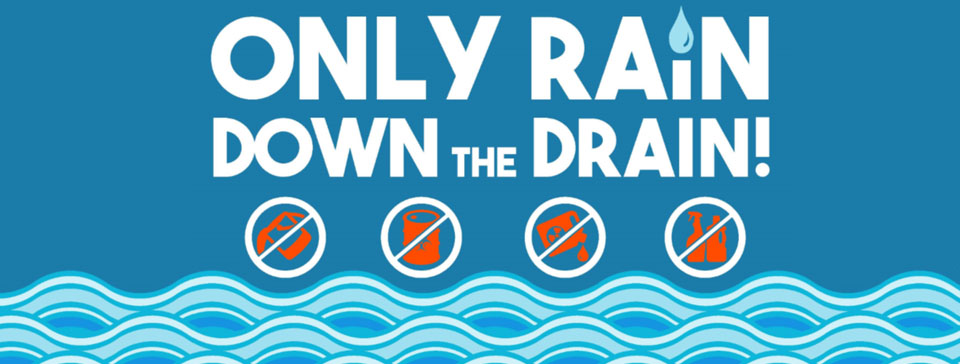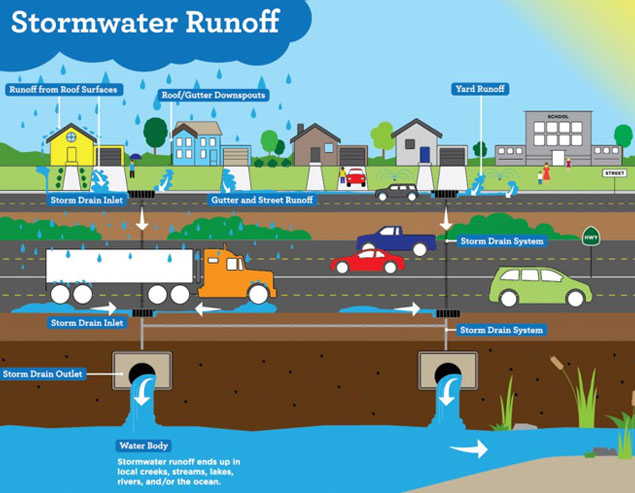2019-20 MS4 Report
constcomplaints (1)
iddcomplaintform (2)190927 Annual Report (4)
raindrainbrochure (3)

Stormwater Runoff
Stormwater runoff is unfiltered water that reaches streams, lakes, seas, inlets and oceans by means of flowing across impervious surfaces. These surfaces include roads, parking lots, driveways, and roofs. This brochure will help you understand the impact that stormwater runoff has on all of us. Unmanaged stormwater runoff has caused serious damage to streams, lakes and estuaries, particularly where land uses change from rural to urban activities.

Problem with the stormwater runoff
Stormwater can pick up debris, chemicals, dirt, and other pollutants and flow into a storm sewer system or directly to a lake, stream, river, wetland, or coastal water. Remember, stormwater does not get any treatment what so ever before entering to the storm sewer system. Then the untreated water is discharged into various water bodies; like lakes, rivers and bays. As a result, the untreated discharge creates a harmful condition into the water bodies we use for swimming, fishing and drinking water.
Effects of Stormwater Pollution

Polluted stormwater runoff can have many adverse effects on plants, fish, animals and people.
Sediment can cloud the water and make it difficult or impossible for aquatic plants to grown. Sediment can also destroy aquatic habitats.
Excess nutrients can cause algae blooms. When algae die, they sink to the bottom and decompose in a process that removes oxygen from the water. Fish and other aquatic organisms cannot exist in water with low dissolved oxygen levels.
Bacteria and other pathogens can wash into swimming areas and create health hazards, often making beach closures necessary.
Debris (plastic bags, six-pack rings, bottles, and cigarette butts) washed into waterbodies can choke, suffocate, or disable aquatic life like ducks, fish, turtles, and birds.
Household hazardous wastes like insecticides, pesticides, paint, solvents, used motor oil, and other auto fluids can poison aquatic life. Land animals and people can become sick from eating diseased fish and shellfish or ingesting polluted water.
Polluted stormwater often affects drinking water sources. This, in turn, can affect human health and increase drinking water treatment costs.
